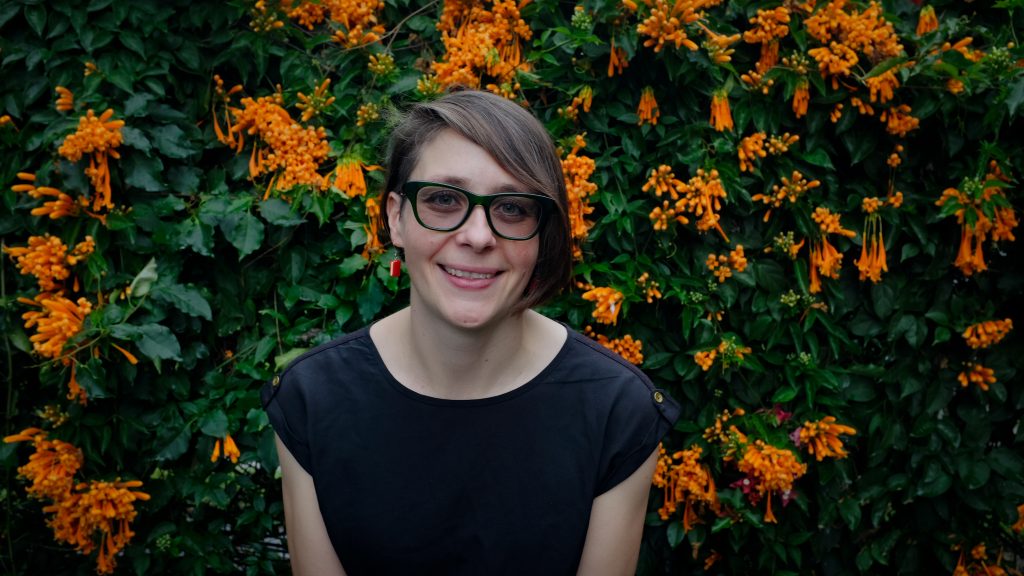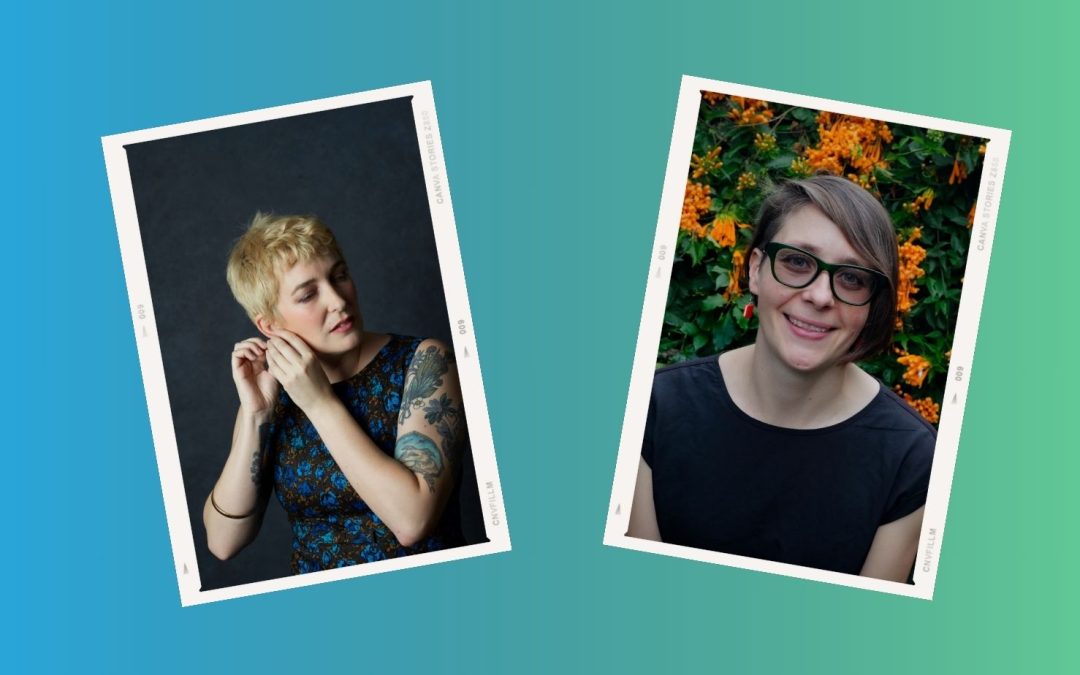by Paul Anderson
In this in-conversation event, cultural critic, Autistic advocate and screenwriter Dr Clem Bastow (they/them) and Autistic editor Dr Louise Merrington AE (she/her) discussed editing the Autistic voice. The event was hosted by Editors NSW on 7 May 2024.
Clem and Lou had plenty to talk about and their conversation flowed smoothly. Both are Autistic writers as well as Autistic editors. Their dual perspectives meant they could each impart experience from both sides of the author–editor fence.
First, they defined some apposite terms. They explained the contexts in which they use a capital “A” in “Autistic” (that is, Autistic as a cultural identity rather than just a medical diagnosis, similar to the distinction between “Deaf” and “deaf”) and identity-first versus person-first language. They also outlined “masking” and “Autistic burnout”.
Clem’s PhD research that “examined the creative intersections of Autistic experience, screenwriting practice, and Hollywood action movies” was a focus; as were two nonfiction books – Clem’s debut book Late Bloomer: How An Autism Diagnosis Changed My Life and an upcoming “collection of Autistic women and gender diverse people’s life writing” that Clem is co-editing with author Jo Case.

Above: cultural critic, Autistic advocate and screenwriter Dr Clem Bastow. Photo: Kristoffer Paulsen.
The Autistic voice
Autism is not monolithic and there is no one Autistic voice. “If you’ve met one Autistic person, then you’ve met one Autistic person,” Clem joked. Therefore, none of what follows should be generalised.
Clem, through learning they are Autistic and engagement with other Autistic writers and their Autistic research, can recognise aspects of their writing that are “inherently Autistic in style” (or traditionally might be thought of as such). Their mode of language partitioning is one of the examples they offered. Clem cited author Bev Harp here, who has written about the way “Autistic people tend to overuse parentheses, semicolons, commas”, and long sentences and big paragraphs. Clem talked about how their echolalia manifests on the page – their repetition of quotes, for example – and also about digressions, such as their inclination to use footnotes and sidebars.
“I can say from my own experience [of being edited as an Autistic writer], we often tend to bury the lead,” Clem said. “Everything’s a bit reversed.” The actual idea or main point may be in the last sentence of a paragraph.

Above: Dr Louise Merrington AE. Photo: Sharon Joseph.
Working with neurodivergent writers
So how can editors work with neurodivergent writers in culturally safe ways that maintain the authenticity of their voices while helping them develop as writers?
It will always be best to determine this on a case-by-case basis, but here are some pointers from Clem and Lou’s conversation:
- Ascertain the writer’s intention with their work. Ask the writer what it is they are trying to convey if it is not immediately obvious. Do not just read their writing and decide for them.
- Suggest changes rather than rewrite. Clem: “What I have found really disturbing is when editors rewrite my work in what they think is my voice and it’s ‘very uncanny valley’.” Clem also prefers a direct style of editorial feedback: “I’m different to a lot of Autistic people that I know who would prefer a softly-softly approach.”
- Explain your suggestions. Lou: “[That’s] something that I really value as [an Autistic] writer … I like to know the logic of things. I have paid a lot of attention to detail … in my manuscript [so if something is to be changed] I want to know why.” Lou also values editors who can provide a new perspective on her work. A good editor can maintain an author’s voice while lifting them out of the weeds.
- Establish the writer’s preferred communication method. This could be in writing (by email) or it could be verbal (but always minuted), for example. Phone calls, especially out of the blue, can be disorientating. Some Autistic people struggle with auditory processing and information retention, while others may have exceptional visual memory.
“I feel like my book [Late Bloomer] was written in the edit,” Clem said. “The second draft was kind of getting there … but it was through that process of working with the editors that it really came together.”
Thank you, Clem and Lou, for a special in-conversation event: I found it to be generous, passionate and empathetic.
A recording of this presentation is available to purchase and view until 31 August 2024.

